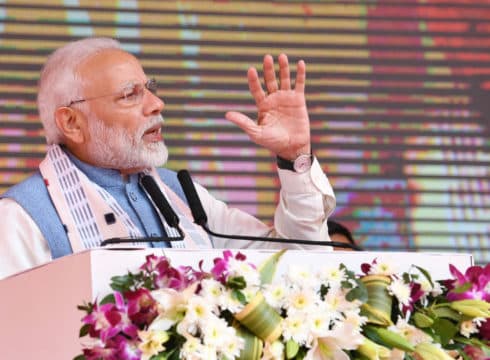The letter, signed by 70 startups, demands a safeguard from Section 56(2)(viib) of the I-T Act
If the angel tax issue is not addressed, it will derail the development of startups, the letter said
An accredited investor mechanism must be adopted to encourage capital investments
Inc42 Daily Brief
Stay Ahead With Daily News & Analysis on India’s Tech & Startup Economy
The Centre’s Startup India programme is under serious threat; the situation is grave, and it will become worse if immediate structural policy measures are not taken to address the angel tax issue, startups have written in a joint letter addressed directly to Prime Minister Narendra Modi.
Since December 18, 2018, numerous startups and organisations including NASSCOM, the Indian Private Equity and Venture Capital Association (IVCA), the Indian Angel Network, software product think tank iSPIRT Foundation and community social media platform LocalCircles have written multiple letters to the Department of Industrial Policy and Promotion (DIPP) and the Central Board of Direct Taxes (CBDT) demanding angel tax exemption.
After multiple assurances by industry and commerce minister Suresh Prabhu, the CBDT had issued a notification stating that no coercive action would be taken in the follow-up of income tax (I-T) notices and demand-orders issued to startups. However, the notification did not deter assessing officers from generating fresh I-T notices.
The letter, signed by 70 startups and the iSPIRT Foundation, asserted that startups require significant capital early on and that raising equity funding via angel investors is the only option for them, which can only be raised at a premium for various reasons.
In the last two years, many startups that raised angel funding in (academic year) AY 2015-16 and AY 2016-17, have received notices from the income tax department under Section 56(2)(viib) of the I-T Act. The notices primarily question the high premium at which shares are allocated by startups during angel funding. In many cases, I-T assessing officers (AOs) disregard the Discounted Cash Flow (DCF) method-based valuation report (as prescribed by the law) and levy a tax — and penalty, which together can even exceed over 100% of the fund raised — by recalculating the valuation.
In most cases, the assessing officers recalculate the valuation via the Book Value Method, which is unsuitable for technology startups with asset-light businesses, disregarding the assessee’s choice of the valuation method, said the letter.
The startups said that if abolishing angel tax or Section 56(2)(viib) altogether is not possible immediately, then, to safeguard genuine investments in startups, the following modification to Section 56(2)(viib) is recommended on a retrospective basis in the upcoming Budget/vote on account:
Investments received by any startups that in the past met or at present meet DIPP’s Level 1 or basic recognition criteria and have raised capital from resident investors to be removed from the purview of Section 56(2)(viib) as a class of people notified by the Central Government.
Appreciating the Centre’s Startup India initiative, the startups also suggested that an accredited investor mechanism in line with global standards should be implemented immediately to encourage capital inflow.
The accredited investor mechanism has also been suggested and lauded by government think tank NITI Aayog’s CEO, Amitabh Kant, in the past, as well as by other startup stakeholders.
{{#name}}{{name}}{{/name}}{{^name}}-{{/name}}
{{#description}}{{description}}...{{/description}}{{^description}}-{{/description}}
Note: We at Inc42 take our ethics very seriously. More information about it can be found here.


